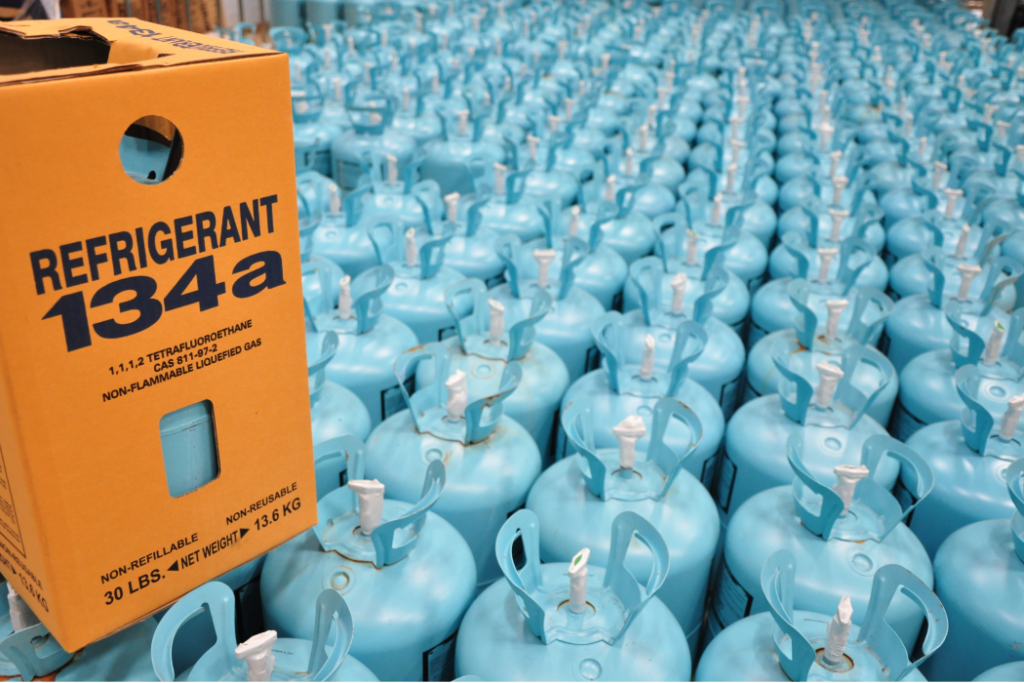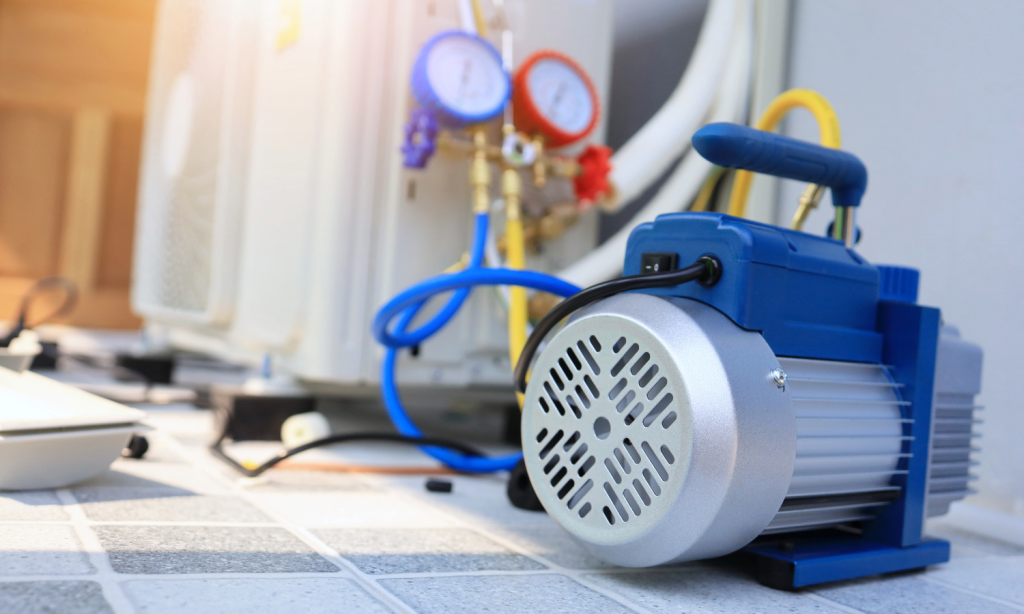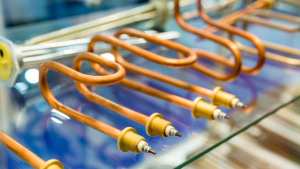In the dynamic world of HVAC, staying ahead of the curve is as vital as the air we breathe—for professionals, for commercial kitchen owners, and for the comfort of patrons. Understanding the nuances of commercial refrigeration isn’t just a nice-to-have skill, it’s a must-have.
Commercial refrigeration systems present unique challenges and opportunities for technicians. They demand precision, expertise, and the ability to diagnose and repair complex issues quickly. From the ‘walk-in’ refrigerator at your favorite bistro to the industrial coolers at the local supermarket, getting to grips with commercial refrigeration isn’t just about keeping things cool; it’s about efficiency, regulation compliance, and business continuity.
In this comprehensive guide, we’ll unpack the world of commercial refrigeration so that HVAC technicians, commercial kitchen owners, and facilities managers can harness the full potential of their cooling systems.
The Fundamentals of Commercial Refrigeration System Types
Understanding the variety of commercial refrigeration systems is the bedrock to effective troubleshooting and maintenance.
Walk-In Coolers and Freezers
Walk-in systems are the fortress walls of refrigeration, tasked with protecting vast amounts of perishable goods in controlled temperatures. They come in different shapes and sizes, and some are designed to be cooled to below-freezing temperatures. They have complex networks of coils and fans, and their control systems can vary in sophistication.
Common Issues:
- Frost build-up
- Leaking refrigerants
- Motor failures
- Temperature inconsistency
Reach-In Refrigerators
Compact yet significant, reach-in refrigerators are often used for daily storage or as display cases in markets. Though smaller, they demand the same level of attention and maintenance as their larger counterparts due to their continuous usage.
Common Issues:
- Door seal malfunctions
- Fan blockages
- Thermostat failures
- Condenser coil dirt
Commercial Ice Machines
Ice machines are the unsung heroes of beverage service, yet when they malfunction, their absence is deafening. HVAC technicians must be well-versed in the intricacies of ice generation and storage.
Common Issues:
- Ice machine scaling
- Water inlet valve malfunction
- Sensor errors
- Evaporator plate corrosion
Specialist Tools for Commercial Refrigeration
Intricate tasks require specialized tools. For HVAC technicians transitioning into commercial refrigeration, the following equipment is indispensable.
Refrigerant Recovery Units
When it comes to handling refrigerants, recovery units are non-negotiable. Built to safely remove refrigerants from cooling systems, they’re an essential tool for any commercial refrigeration job.
Manifold Gauges
Manifold gauges are the eyes of the refrigeration system. They measure pressure within various system points, allowing technicians to diagnose issues and even charge a system with the correct amount of refrigerant.
Leak Detectors
Refrigerant leaks are potentially hazardous and can significantly impact the system’s performance. Leak detectors assist in pinpointing leaks for quick repair and system recharging.

Preventative Maintenance for Commercial Refrigeration
Preventative maintenance is the frontline defense against catastrophic system failure. Commercial refrigeration systems are often running continuously, making regular upkeep critical.
System Checks
At the heart of preventative maintenance are regular system checks. These include inspecting for worn parts, checking electrical connections, and ensuring the system’s controls are functioning correctly.
Coil Cleaning
A system’s coils can accumulate dirt and dust, which reduces the unit’s efficiency. Frequent cleaning, particularly of the evaporator and condenser coils, is important to maintaining the system’s performance.
Compressor Maintenance
Compressors are the engines of refrigeration systems. Keeping an eye on the compressor’s oil levels, ensuring it’s not overheating, and checking for any unusual noises can prevent catastrophic failures.
Keeping Abreast of Regulations and Best Practices
Commercial refrigeration doesn’t operate in a vacuum; rather, it’s heavily regulated and subject to industry best practices.
Refrigerant Phase-Outs and Replacements
The refrigeration industry is undergoing a seismic shift as environmentally harmful refrigerants are replaced by more eco-friendly versions. Staying informed about phase-outs and replacements is vital for both compliance and environmental responsibility.
System Updates and Advancements
In an industry as dynamic as commercial refrigeration, staying current with system updates and technological advancements can present new opportunities for efficiency and savings.
Safety Considerations
Working with commercial refrigeration systems has inherent safety risks. Understanding proper handling of refrigerants, electrical safety, and the use of personal protective equipment is paramount.

Developing Diagnostic Skills
Diagnosing the problem is often the most challenging part of the job. Commercial refrigeration systems are no different and require a methodical approach.
Understanding Refrigeration Cycle Diagrams
A thorough grasp of the refrigeration cycle and system diagrams is akin to a map through a labyrinth. It enables technicians to comprehend where issues may arise and the impact they’ll have on the system.
Utilizing Diagnosis Tools
Modern diagnostic tools are incredibly powerful, enabling technicians to analyze system performance with precision. However, they are not a substitute for experience and a well-honed diagnostic skillset.
Troubleshooting Common Issues
Prevalent issues such as cooling loss, compressor problems, and refrigerant leaks often have several potential causes. A systematic approach to troubleshooting is invaluable in quickly finding the root cause.
Effective Repair and Replacement Best Practices
When it’s time to make repairs or replace components, following best practices is essential. Poor repair work can lead to further issues down the line.
Part Quality and Selection
Opting for high-quality replacement parts ensures the job is done right the first time. Selecting parts that are appropriate for the specific system is also critical to the repair’s success.
Voltage and Electrical Component Compatibility
Electrical components in refrigeration systems can be delicate. Understanding voltage and compatibility issues prevents shorts and other electrical mishaps.
Proper Installation Techniques
Even the best replacement part can fail if not installed correctly. Proper techniques, adhering to manufacturer guidelines, and the use of torque wrenches where necessary are all parts of effective installation.
Training and Further Education
For HVAC technicians interested in solidifying their commercial refrigeration skills, there are a plethora of training and educational opportunities available.
Certification Programs
Certification programs specialize in commercial refrigeration, providing a structured educational experience and recognized accreditation upon completion.
Manufacturer-Specific Training
Many manufacturers offer specialized training on their systems, providing in-depth knowledge and perhaps even a competitive edge for those familiar with their products.
Continuing Education
Continuing to learn and grow within the field is key. Staying current with publications, attending trade shows, and participating in webinars can provide a stream of new information and techniques for tackling commercial refrigeration.
Conclusion: The Cool Road Ahead
Commercial refrigeration is a complex, vital component of countless businesses and industries. For HVAC technicians willing to step into this realm, it offers a new professional frontier filled with challenges and rewarding opportunities for growth and expertise.
By mastering the fundamentals of different system types, wielding the right tools, and committing to ongoing education and best practices, HVAC technicians can ensure that both they and the systems they maintain stay relevant and reliable in this ice-cold arena. Remember, in the realm of commercial refrigeration, being cool isn’t just a statement; it’s a standard.
Level One HVAC technicians and installers are highly qualified and participate in rigorous training with all major manufacturers. Our reputation as a high-quality HVAC construction and installation service provider is directly contributed to our team. To send us a resume, click here
For general inquiries please send us a message and one of our customer service representatives will be happy to answer your questions.
New Hudson, MI 248.486.6500
West Branch, MI 989.999.4822













